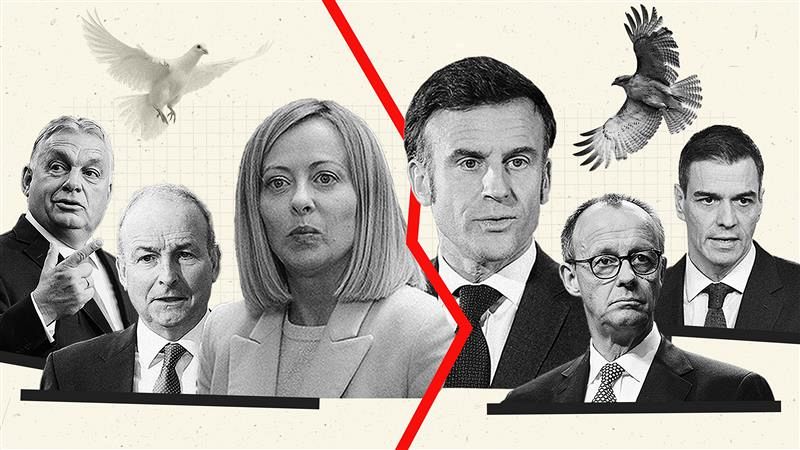
As the EU weighs its response to US tariffs and hopes to start negotiations with the US, a rift has emerged over the last weeks within the bloc over the intensity and scope of potential retaliatory measures. While hawks are calling for a firm and united front, the doves urge caution, warning against escalation and economic fallout.
Hawks ready to deploy EU's nuclear trade defence weapons
For the hawks, it's all about showing muscle in the face of the Trump administration, to ensure that they are in a position of strength in the negotiations to lift US tariffs - currently 25% on aluminium, steel and cars and 10% across-the-board. These argue that in addition to slapping tariffs on goods, the EU could hit US services, for which US has a trade surplus vis-a-vis the EU, and use its “nuclear” weapon, an anti-coercion tool, to deny US companies access to European procurement, or to deprive them of licences and intellectual property rights.
France
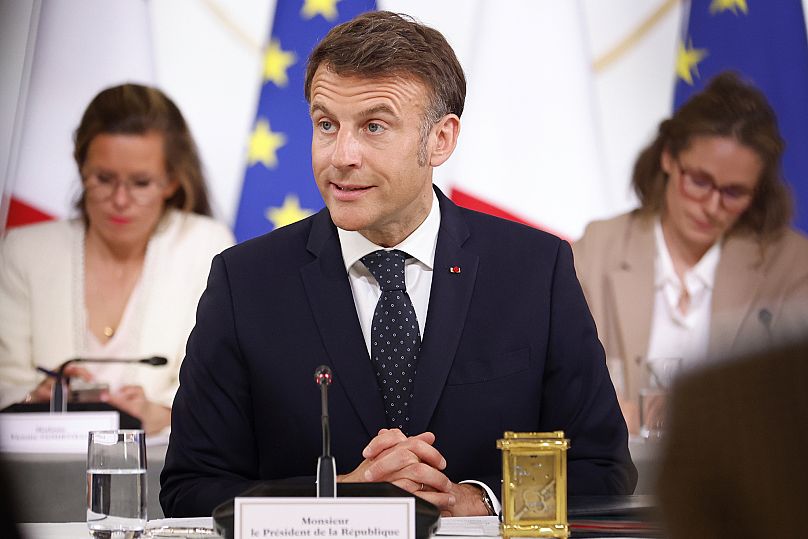
France is one of the most combative countries, ready to enter the ring with the US.
On 4 April, French president Emmanuel Macron denounced US “reciprocal” tariffs of 20% on EU imports as “brutal and unfounded”. “Future investments [in the US], investments announced in the last weeks, should be suspended for a time," Macron cautioned French business leaders.
In the corridors of the Council, where the EU member states meet, French diplomats are pushing for a robust response to US tariffs. After the 25% EU tariffs imposed on Wednesday on a series of American products, Paris wants to go further to retaliate against the US “reciprocal” tariffs and 25% US tariffs on cars, which have now been suspended for 90 days.
“I don't think we should rule out any option on goods or services,” French trade minister Laurent Saint-Martin said on Monday, adding: “The way to approach it is to open up the European toolbox, which is very comprehensive and which can be extremely aggressive in return. I'm obviously thinking of the anti-coercion instrument.”
The French president admitted however that the French economy was not as exposed to US trade as some other countries: “Exports to the United States represent 1.5% of our gross domestic product [GDP]. This compares with 3% for Italy, 4% for Germany and 10% for Ireland.”
France also fought to exclude Bourbon whiskey from the first list of retaliatory measures to prevent its wines from being hit by US wrath, with US president Donald Trump threatening them with 200% tariffs.
Germany
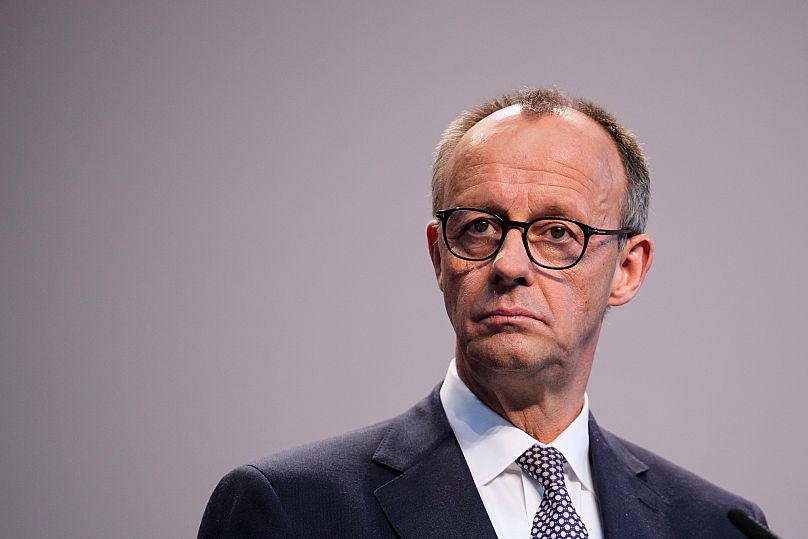
The dossier awaits Friedrich Merz, now waiting in the wings to assume Germany’s chancellorship. The US tariff onslaught has impacted Germany heavily, as the EU's largest exporter to the US, with €157.7 billion euros worth of goods sold across the Atlantic in 2023, according to Eurostat.
"Europeans are determined to defend ourselves and this example shows that unity helps most of all," Merz said in an interview about Trump's pause of tariffs for 90 days.
After arguing for a moderate “wait and see” approach, Germany's government has sided with France, and appears ready to use EU trade “nuclear” weapon if needed.
On 7 April, en route to a meeting of EU trade ministers amid plunging stock markets, Robert Habeck, the trade minister ofcurrent German Chancellor Olaf Scholz made clear that the EU must engage forcefully with the US.
"The stock markets are already collapsing and the damage could become even greater. It is therefore important to act clearly and decisively and prudently, which means realising that we are in a strong position,” he said, adding: “America is in a position of weakness.”
In addition to tariffs, Germany has put the anti-coercion tool on the table as a potential retaliation to US tariffs. “These are measures that go far beyond tariff policy,” Habeck said, pointing out a “broad palette” of retaliation that could be extended to hit US digital services.
Spain
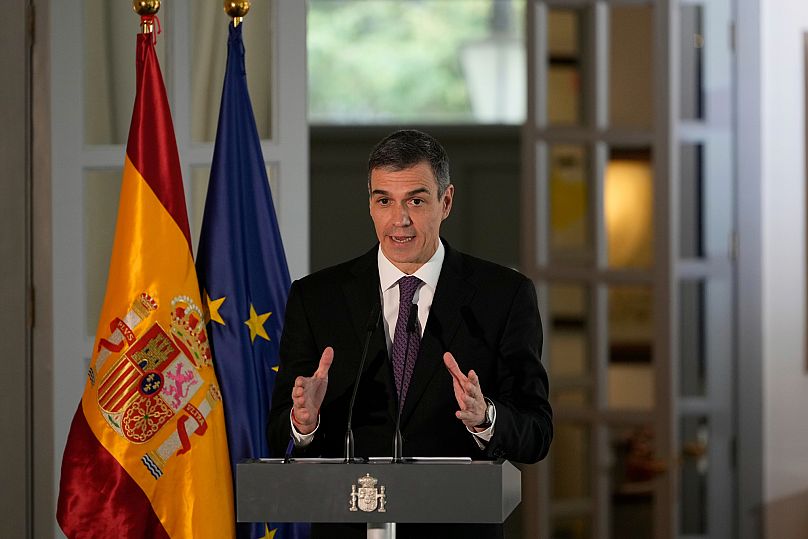
Spanish Prime Minister Pedro Sánchez initially adopted a more assertive tone in response to the Trump administration’s tariffs.
While advocating for dialogue and multilateral cooperation, Sánchez supported proportional countermeasures, calling for European unity in the face of US trade threats.
“Now more than ever, Europe must be prepared and show that unity to respond to any eventuality,” he said.
His economy minister, Carlos Cuerpo, even invited his EU counterparts to remain open “to all potential means of retaliation against US tariffs” in an interview. “We’re open to negotiations, we’re open to trade, but we will not be naive,” he added.
Following Trump’s announcement of a tariff truce, however, Sánchez welcomed the move as “a door to negotiation” and a chance for renewed international cooperation.
His recent shift toward dialogue after his initial criticism of tariffs he considered “unjustified and unfair”, sees him edging in a more doveish direction.
During an official visit to Vietnam, he reiterated his support for open trade, arguing that global commerce is not a zero-sum game and that trade wars result in mutual losses.
The doves, concerned over escalation
Within the bloc, several member states have opted for a conciliatory approach, prioritising diplomacy and de-escalation over confrontation. While Hungary remains a notable outlier in its stance, this measured posture does not equate to a rejection of self-defence - all EU countries save Hungary voted for the first wave of EU retaliation on Wednesday. But many countries are showing caution, choosing not to advocate for the bloc’s most forceful retaliatory instruments, amid concerns that such moves could lead to a dangerous escalation.
Italy

Italian prime minister Giorgia Meloni has positioned herself firmly among the “doves” in transatlantic trade relations, favouring dialogue over confrontation in response to the Trump administration’s tariff policies.
She said that “a trade war is not in anyone's interest, not even the US” and that she intends to address the issue with Trump to find positive solutions without escalation.
She already announced plans to meet him on April 17 in Washington to discuss the mutual elimination of industrial tariffs between the US and the EU. This meeting, following the announcement of a 90-day truce, is seen as an opportunity to reinforce her commitment to constructive dialogue and shared solutions.
Meloni has also consistently underlined the significance of the US market for Italian exports - which according to Eurostat amounted to €67.3 billion in 2023 - warning that new duties could severely impact Italian producers.
“I remain convinced that we must work to avert a trade war that would benefit no one, neither the U.S. nor Europe,” she said.
Ireland
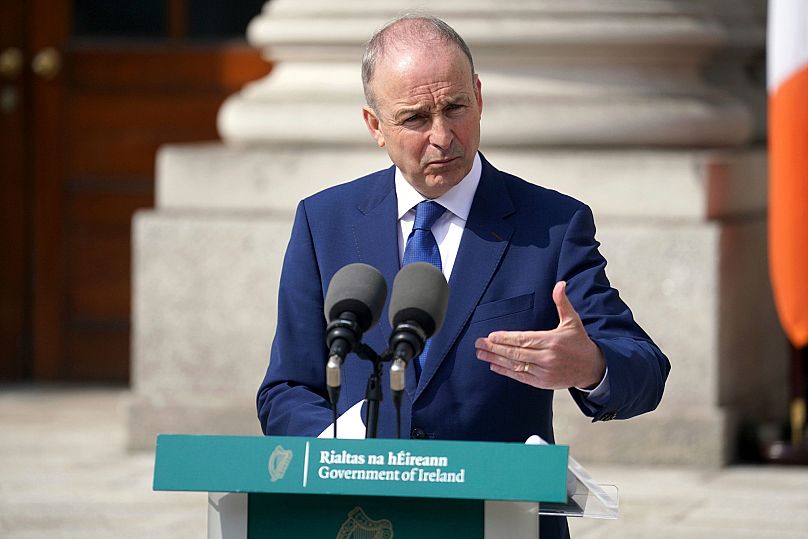
Ireland’s Taoiseach Micheál Martin has been a consistent advocate of maintaining good trade relationships on both sides of the Atlantic, a position shaped by the country's economic vulnerability to tariffs due to its substantial export ties with the United States.
Rejecting retaliatory measures, Martin has insisted on negotiation as the path forward. He has urged the European Union to present a “united front” while also stressing the importance of maintaining strong transatlantic trade ties.
“Engagement is key,” he said. “Our objective is to work through this with the overarching priorities being the protection of jobs and the maintenance of economic infrastructure in Ireland.”
Martin warned that tariffs are “not conducive to economic growth.” Economic models predict that a 10% tariff could reduce Ireland’s GDP by 2.5% and domestic output by 1.7%, since Ireland's exports to the US totalled €51.6 billion in 2023
Pharmaceuticals, which make up more than half of Ireland’s exports to the US, remain a key area of concern. Although currently exempt of US tariffs, the sector is still considered at risk in any future escalation.
Hungary
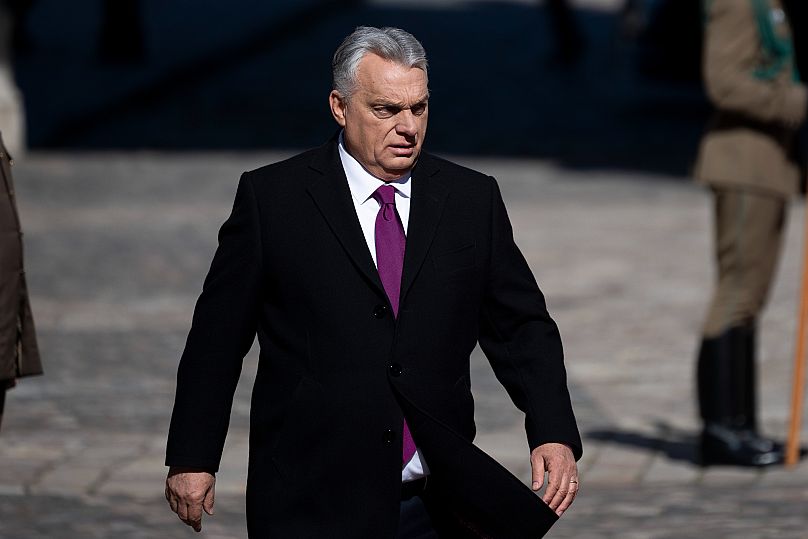
Despite being exposed to US tariffs because of its reliance on the German car industry, Hungary does not want to retaliate against US tariffs. It was the only country to vote against the first wave of EU retaliation to US tariffs on Wednesday .
Prime Minister Vitkor Orban, who is politically close to Donald Trump, seems to hope that an economic agreement with the US will offset US tariffs' impact on his country.
“There will be a Hungarian–American economic cooperation package which will be of considerable assistance to the Hungarian economy. This is good for us, even if in the meantime there is a tariff war – which Hungary will of course lose, as will every other European Union country,” Viktor Orban said at the annual conference of the Hungarian Chamber of commerce and industry on 8 March.
On Monday, Péter Szijjártó, his trade minister, put the blame on the Commission for failing to build “custom cooperation with the US”.
“The problem was not complicated,” he said “tariffs on the car industry, which is the backbone of the two continental economies, should have been reduced, and everyone would have been better off.”







